#yugoslavian artists
Explore tagged Tumblr posts
Text

Varanasi , India - Radenko Milak , 2022.
Yugoslavian, b. 1980 -
Watercolour on paper , 35 x 25 cm.
88 notes
·
View notes
Photo
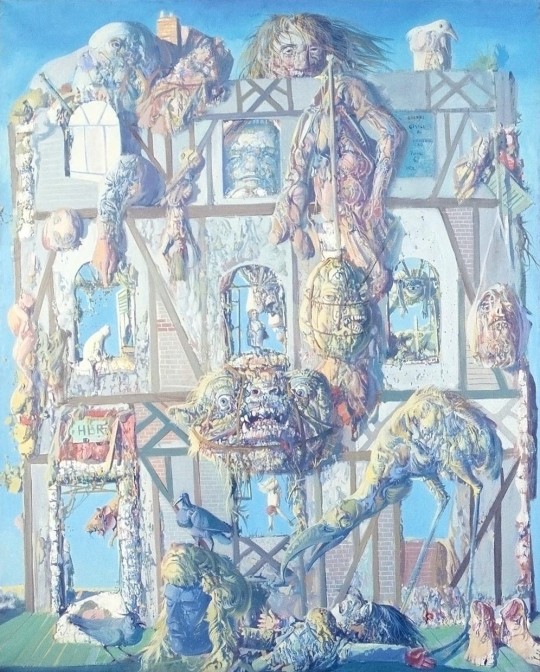
Dado (Miodrag Đurić, 1933-2010) — Civil War in Montenegro [oil on canvas, 1968]
367 notes
·
View notes
Photo
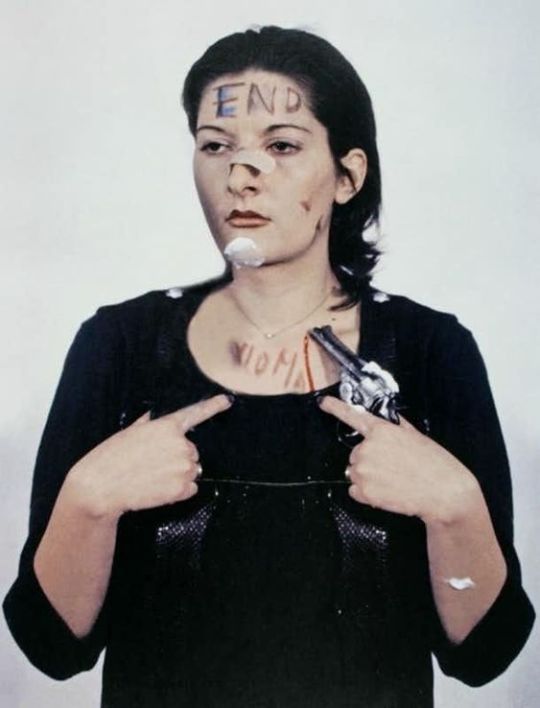
Marina Abramovic, rhythm 0, 1974
#marina abramovic#rhythm 0#1974#1970s#1970s art#70s art#performance art#performance artist#performance piece#art#artist#female artists#photography#photo#women in performance art#female art#conceptual#contemporary art#yugoslavian artist#serbian artist#abramovic#performance
386 notes
·
View notes
Text
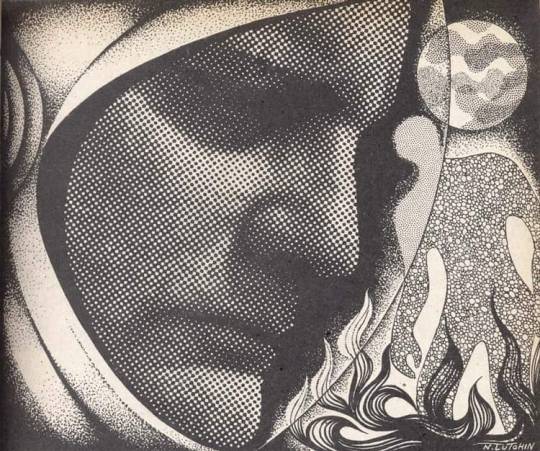
Sci-fi illustrations from 70’s Yugoslavia.
Surrealistic 70’s serigraphies by Yugoslavian born Russian artist Nikolai Lutohin.
204 notes
·
View notes
Text
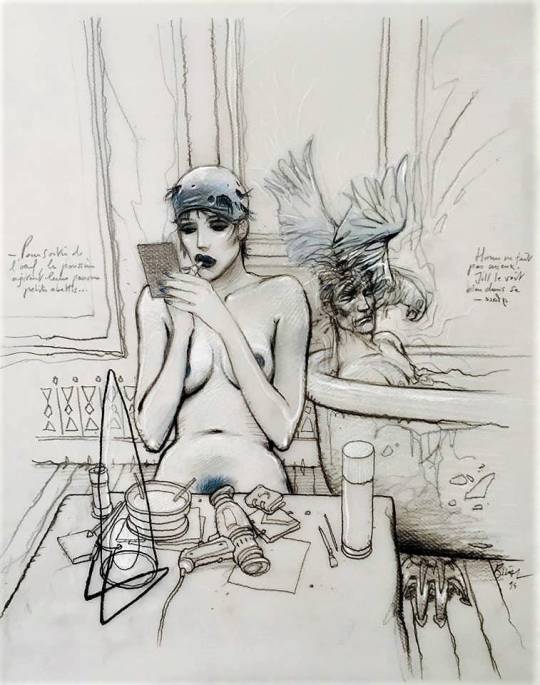
Enki Bilal is French-Yugoslavian comic book writer and artist
159 notes
·
View notes
Text




















Sci-fi illustrations from 70’s Yugoslavia.
Surrealistic 70’s serigraphies by Yugoslavian born Russian artist Nikolai Lutohin. Many of these illustrations appeared on the Sci-fi magazine Galaksija.
44 notes
·
View notes
Text

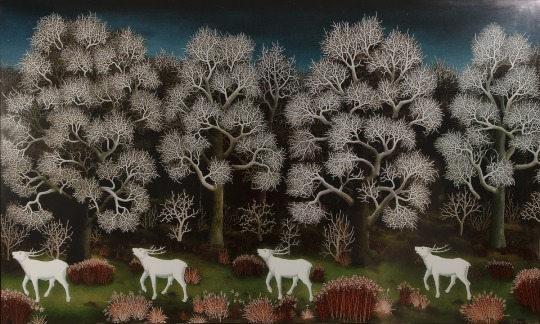




Ivan Generalic (1914-1992), Croatian
Ivan Generalic is now heralded as the original driving force behind Yugoslavian naïve or outsider art. He was born in the small town of Hlebine in 1914, where he also attended the local primary school until he was deemed old enough to work as a cowherd and a peasant farmer. Ever since his earliest memory, Generalic would draw with whatever materials he had available, whether it was a freshly painted gate he adorned with chalk, a patch of earth he engraved with a sharp stick or the drawing block and pencil he took to carrying around with him. When the other cowherds would take a break for a nap or a bite to eat, Generalic would retrieve his drawing materials and record the life of peasants without romanticizing the hard work and the apparent exploitation.
He claimed that initially his neighbours did not think much of his work because it did not fulfill their notion of what art ‘should’ be. However, since Generalic drew for his own personal fulfilment and not for critcal acclaim, he continued to record his vision of the lives lived around him. Acclaim did follow, although it was first voiced in the more urban centre of Zagreb rather than from the locus of his inspiration. In 1953 Generalic moved with his first wife, Anka Kolarek, to Paris, where he worked and exhibited for two months. Although this move increased his exposure to a variety of art and experiences, and did inform his work, he never lost his own manner of painting and he continued to depict his own ideology and peasant values.
When Anka died in 1975, Generalic moved to Sigetec, another village close to Hlebrine, where he married for a second time. He continued to paint and enjoyed offering guidance to younger artists, such as Dragan Gazi, of the same region. In 1992 Generalic died, leaving behind an inspired art movement.
33 notes
·
View notes
Text
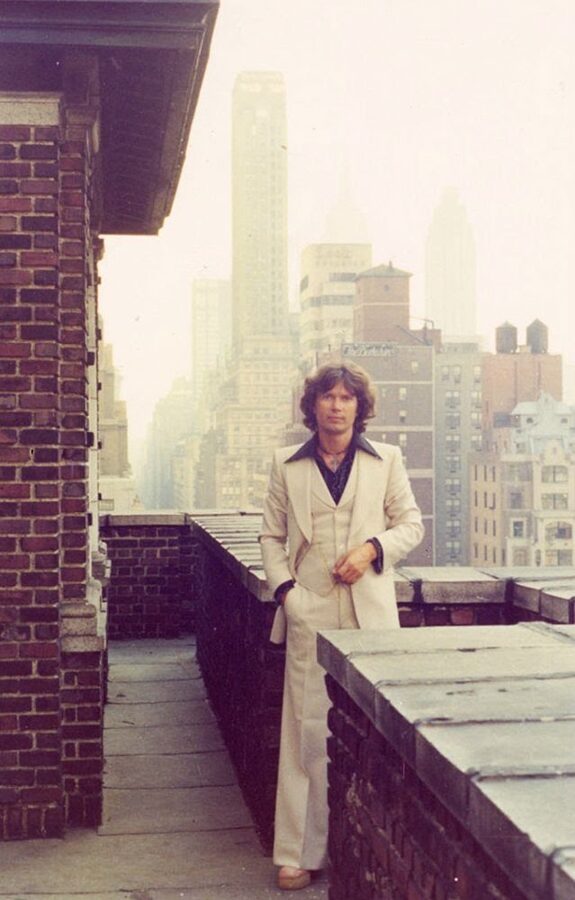
“Alyoshka was not yet a Catholic then, but he no longer wore a beard. He had just been laid off as a guard, he had surrendered his nightstick and uniform and become once more the mustachioed and dark-eyed Alyoshka Slavkov, cheerful despite a bad limp, lover of booze. Alyoshka fed me sauerkraut and sausages, his unvarying diet, and sat down to translate a document I had brought. Entitled "Memorandum," the document expressed the hopes and dreams of what we called "the creative intelligentsia"—of Alyoshka and myself and a great number of other artists, writers, filmmakers, and sculptors who had emigrated from the USSR and whom no one here needed one fucking bit.
Alyoshka translated, and I sat in an old chair, its upholstery worn shiny, and thought about our document and our intrigues. "A drowning man's effort not to drown," I thought. Two pages. To be sent to Jackson, Carey, and Beame. As if they would help us with our art. Those demagogues had needed us, however, while we were over there. Here they shoved us on welfare so we wouldn't bitch. Okay, Ivan, have a spree, enjoy your freedom.
Cold-blooded Americans, they're so fucking smart, they advise the likes of us to switch professions. Just one thing—why don't they switch professions themselves? When a businessman loses half his fortune he throws himself off the forty-fifth floor of his office building, he does not go to work as a guard. I could have conformed in the USSR, why the fuck come here to do it? That was all the Soviet regime wanted of me, to change my profession.
A fine emigration we are, I went on in my thoughts, the most frivolous one yet. Usually only the fear of starvation or death can force people to leave a place, abandon their homeland, knowing that they may not be able to return, ever. A Yugoslavian who leaves for a temporary job in America can return home to his country, we can not. Never again shall I see my father and mother; I, little Eddie, am firm and calm in this knowledge.
It all started with Messrs. Sakharov, Solzhenitsyn, and company, who turned us against the Soviet world without ever having laid eyes on the Western world. They were prompted not only by specific purposes—the intelligentsia were demanding a part in governing the country, demanding their share—but also by pride, the desire to advertise themselves. As always in Russia, moderation was not observed. They may have been honestly deceived, Sakharov and Solzhenitsyn, but they deceived us too. Whatever the case, they were "dominant influences." So powerful was the intelligentsia's movement against their country and its system that even the strong could not resist and were swept along. So we all shag-assed over to the Western world as soon as the opportunity presented itself. We shag-assed over here, and having seen what the life is like, many if not all would shag-ass right back, but it's impossible. The Soviet government is not nice.
Fucking smart Americans, they advise men like Alyoshka and me to change professions. Where am I to hide all my thoughts, feelings, ten years of living, books of poetry? And me myself, where am I to hide refined little Eddie? Lock him up in the shell of a busboy. Bullshit. I tried it. I can no longer be an ordinary man. I am spoiled forever. Only the grave will reform me.
Eventually American security forces are going to have trouble with us. After all, not everyone conforms. In a couple of years look for Russians among the terrorists in liberation fronts of every description. That is my forecast.
Change our professions! Can the soul be changed? Knowing definitely what he is capable of, is it everyone who can suppress himself here and live the life of an ordinary man, laying no claim to anything, when he sees around him money, success, and fame, all of it largely undeserved, when he knows from experience both here and in the Soviet Union—and in this case the experience is identical—that he who is obedient and patient receives all from society, that he who sits on his butt all day and curries favor gets it all.
The brilliant inventors of vegetarian sandwiches for Wall Street secretaries can be counted on the fingers of one hand. For the most part, people arrive at success here just as they do in the USSR, by obedience, by wearing out the seat of their pants in their own or a government office, in boring daily labor. That is to say, civilization is constructed in such a way that the most restless, passionate, impatient—as a rule the most talented, who seek new paths—break their necks. This civilization is paradise for the mediocre. We thought the USSR was a paradise for the mediocre, we thought it would be different here if you were talented. Fuck no!
Ideology there, business reasons here. That is roughly true. But what difference does it make to me exactly why the world doesn't want to give me what is mine by right of my birth and talent? The world calmly gives it—a place, I mean, a place in life, recognition—to the businessman here, to the party worker over there. But it has no place for me.
Fucking shit! I'm being patient, world, very patient, but some day I'll get fed up. If there's no place for me, and for many others, then who the fuck needs a civilization like this?
That last thought I expressed aloud to Alyoshka Slavkov, who is far from agreeing with me in everything. He is drawn to religion, inclined to seek salvation in religious tradition; on the whole he is calmer than Eddie, although he too has storms raging within him, I think. He dreams of becoming a Jesuit, and I mock his Jesuitism and predict that he will participate in the world revolution along with me, a revolution whose goal will be to destroy civilization.
"And what would you build in its place, you and your friends in the Workers Party?" Alyoshka said. For some reason he lumps me in with the Workers Party, to which I have never belonged. I have merely been interested in it, as in any other leftist movement. I did become more intimate with Carol and her friends than with members of the other parties, but that was pure chance.
"The hardest thing of all," I told Alyoshka, "is to overthrow this civilization, tear it out by the root so that it cannot revive as it did in the USSR. To overthrow it once and for all is to build something new."
"And what will you do about culture?" Alyoshka asked
"This feudal culture," I said, "which inculcates wrong interpersonal relationships that originated in the distant past under a different social order-what will we do about it? We'll fucking annihilate it. It's unhealthy, it's dangerous with all its little tales of good millionaires, wonderful police who defend citizens from bestial criminals, magnanimous politicians who love flowers and children. Why is it that not one of these stinking authors—notice, Alyoshka, not one—will write that crimes, the majority of them, are generated by civilization itself? If a man kills another and takes his money, it's certainly not because he likes the color and crunch of those scraps of paper enough to murder another. He knows from his society that among his fellow countrymen those scraps of paper are God, they'll bring him any woman he wants, and bring him his grub, and deliver him from exhausting physical labor. Or a man kills his wife for betraying him. But if there were other customs, a different ethic, and interpersonal relationships were measured only by love, then why would he kill for unlove? Unlove is a misfortune, it's to be regretted. Television always shows families, and gentlemen in suits. But that's already on the way out. The gentlemen in suits are on the way out, and the wild wind of new relationships, ignoring all police measures, all religious barriers, howls over America and the whole world. The gentleman in a suit, the gray-haired head of the family, is suffering defeat after defeat, and soon, very soon, he will no longer be able to govern the world. The husband and wife who joined together in order to have a more peaceful, economically more advantageous life—not for love, but at the decree of custom—theirs was always an artificial arrangement and engendered a host of tragedies. Why the fuck preserve an obsolete custom?"“ - Eduard Limonov, ‘It's Me, Eddie’ (1979) [p. 148 - 151]
#limonov#eduard#eddie baby#eddie#russia#russian literature#russian punk#new york#soviet art#post soviet#soviet#ussr#national bolshevism#civilization#civilisation#culture#aleksandr solzhenitsyn#art#artist#freedom
12 notes
·
View notes
Text
wish my dad listened to his uncle who had good connections to the Yugoslavian communist party instead of his other uncle who was chasing the American dream but who died a penniless artist
6 notes
·
View notes
Note
The Specials - Ghost Town (This is one of the towering achievements of the genre. Despite Ska's cheery reputation, this cut is soaked in dread. One of the best bands of the 70s UK, which is saying a lot.) The Selecter - Three Minute Hero (Some bouncy, frantic dance music with a raspy, energetic frontwoman. I always preferred organs to horns in Ska.)
Kontraritam - Zozo Vrati Se (This isn't really 2-tone, given these guys were Yugoslavian, but it's the same sound and timeframe. Yugo New Wave is so underrated.) Elvis Costello - The Imposter (Not really a Ska artist, not his best song, but I love it, damn it.)
XTC - Statue of Liberty (Ditto.)
.
3 notes
·
View notes
Text
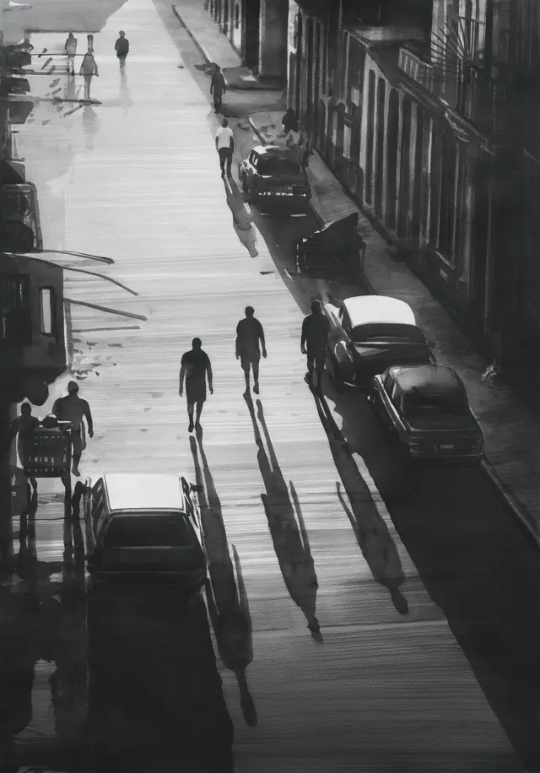
Neighbours , 20 April 2020 - Radenko Milak , 2022.
Yugoslavian, b. 1980 -
Watercolour on paper , 35 x 25 cm.
99 notes
·
View notes
Photo

Dado (Miodrag Đurić, 1933-2010) “America” [oil, canvas, 1960-1965]
118 notes
·
View notes
Text
Music preference headcanons (Lemon Edition)
I was supposed to sleep but my brain didn't want to sleep apparently, and because I'm a real music nerd, and have a lemon hyperfixation or something, I wrote these.
Grem
- Probably likes 80s - 90s rock/glam metal and maybe some new wave and disco too.
- I think bands like Monster Magnet and Dokken would suit his taste pretty well.
Acer
- Mostly same with Grem but mix in some newer music too, like pop punk maybe?
Zundapp
- Not really a huge fan of music but he would like Kraftwerk and you can't tell me otherwise.
J Curby Gremlin
- He seems like a classic "Dad rock" enjoyer, so bands like Deep purple, Uriah heep and Rainbow would be his favourites.
- He has a shelf full on cassettes and cds.
- Also I think he would listen to some jazz aswell.
Tubbs Pacer
- Kinda similar taste with Curby, but would like bands from 60s more, The Animals for example.
Victor Hugo
- Ever listened to that one Yugoslavian funk/jazz/disco mixtape on YouTube? (A great one btw) Because I think that type of music would suit him, Igor Savin for example.
Alexander Hugo
- I could see him enjoying new wave, synth rock/pop or post-punk.
- He probably knows many underground bands and artists.
Vladimir Trunkov
- He'd probably like jazz and some classical music but I also think his taste would be similar to Victor.
- I'm pretty sure he has a big vinyl collection somewhere.
Miles Axlerod
- He would listen to newer bands or artists and whatever's playing on the radio. A bit mainstream guy.
#cars#cars 2#cars fandom#Grem#Acer#professor zundapp#professor z#J Curby Gremlin#Tubbs Pacer#Victor Hugo#Alexander Hugo#vladimir trunkov#Miles axlerod
13 notes
·
View notes
Text
Maybe I’m so lenient on artists changing their sound because... well even if I don’t listen to AA’s new stuff that much, I listen to so many different genres of music, like Idc if AA is classified as butt rock nowadays. If you can’t listen to different genres and enjoy them that's a you problem.
Maybe it’s just because I’ve been grown up on 80s pop, 90s Estonian pop, 80s rock, Middle Eastern dance music (?? i hope that’s a correct way to call it... my mom loves that stuff) and just Arabic music in passing, Russian 90s pop that both my parents and grandma liked, LOL..., süldibändid (i can’t even translate that lmao that’s like our very own special music genre that they play at village parties n shit. like pop+country+folk+rock, but something feels off and wrong about it), then I started listening to mf NU-METAL out of all things, regular rock, msi (i cant even classify that...), like man i fucking LOVED Hollywood Undead, Korn and Papa Roach, as well as Mr Brightside but who DOESN’T love that??? Then actual goth music, emo/scene music, literally all flavours of it, even hyperpop gets added in the mix, in 2015 i loved lo-fi depression music (elvis depressedly, coma cinema, alex g), in 2020 i discovered yugoslavian 80s underground music from this 1 youtube guy who just keeps uploading stuff constantly (i love you Dronemf S.) , i love lovejoy too and Marina was my queen back in the day and i will listen to doja cat and lil nas and idk some other popular pop music rapper like ... GET SOME DIVERSITY IN YOUR MUSIC PEOPLE you can’t just listen to one fucking genre and think that that’s the end all be all of music!!! you’re BORING. like fuck off if i can listen to 5MIINUST then you can listen to alone again by AA
5 notes
·
View notes
Text
Was Nico a Nazi?
Lena Kelsall
Many of us know harrowing sounds of the Velvet Underground’s lead accompanying female vocalist on their debut studio album “The Velvet Underground and Nico” produced in part by Andy Warhol, but who among us has investigated the sinister origins and worldview of this beautiful and lonely proto-punk Feme Fatale?
The longevity of her career as well as the allure with contemporaneous male artists make Nico a misunderstood but enticing proto-punk figure. She sold out a show in San Fransisco at the club Fab Mab as a solo artist almost 10 years after the album with The Velvet Underground debuted, but she played none of her folksier tunes made in collaboration with the Underground nor her solo album “Chelsea Girl” made with help from artists like Bob Dylan a decade earlier. Rather, she performs the eerily ambient and gothic sounds made with her harmonium and afflicted voice, produced with the help of John Cale from her albums “Dessert Shore”. What is troubling however, is her choice of finale at this performance at Fab Mab’s; a rendition of “Deutschland,’ the German national anthem including the parts which are routinely omitted for the national socialist connotations. A rendition entitled “Das Lied Der Deutschen” is the closing track on her 1974 Album “the End...” and a performance of it in Berlin is said to have incited a riot among students. Can we acknowledge Nico’s “Nazi-esque” leanings and still listen to her music?

Nico was born Christina Päffgen in Cologne in 1938, she came into the war-torn continent with a Nazi-informed world view as her Spanish and Yugoslavian parents were coerced towards Hitler’s cause to their fatal end. Despite enduring trauma growing up in the midst of WWII, she was educated in France, Italy and Germany and pursued a model-actress-singer career across Europe from the age of 15. Although Nico’s biographer uncovered her diaries from her childhood in Cologne where she wrote sentiments of resistance towards the anti-sematic human degradation she witnessed, this is not a qualification for racist behaviors and statements from her recorded in the 70’s where she had a public platform on the continent which claims freedom and human liberty. As people debate ‘canceling’ and deplatforming problematic figures, and considering the use of swastikas in the punk scenes in London (in a critical method of Detournement, or in a white nationalist way by skinheads), we have reason to seriously consider the ideological implications of an artist's identity and perhaps separate it from their art.
Bibliography
Greg Turner, “Nico on th’west coast and other UFO sightings” New York Rocker Vol 1 No 11 February-March 1977 accessed via Special Collections at Charles Library
“She'll Be Your Mirror: Who Was the Real Nico?” The Independent, Independent Digital News and Media, 4 July 2021, https://www.independent.co.uk/arts-entertainment/music/features/nico-biography-velvet-underground-b1875484.html.
Fyles, Fred S. “Problematic Faves: Nico.” Felix, https://old.felixonline.co.uk/articles/2016-12-9-problematic-faves-nico/.
“She'll Be Your Mirror: Who Was the Real Nico?” The Independent, Independent Digital News and Media, 4 July 2021, https://www.independent.co.uk/arts-entertainment/music/features/nico-biography-velvet-underground-b1875484.html.
2 notes
·
View notes
